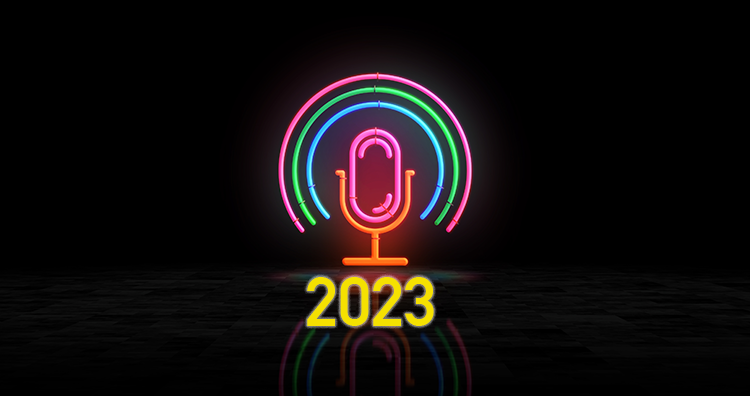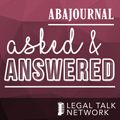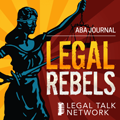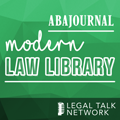Listen to our 10 favorite podcast episodes of 2023

Illustration by Lee Rawles/Shutterstock.
Looking for a new listen? We've picked our favorite 2023 episodes from each of the ABA Journal's three podcasts, one of which is bidding adieu after a 13-year run. If this whets your appetite, find all our past episodes on our podcast page. You can also check out more legal podcasts from our partners at Legal Talk Network.
Asked and Answered

Apple | Spotify | Google Play
• “Attorney for Lawrence v. Texas reflects on LGBTQ rights on 20th anniversary”: Winning a 2003 landmark U.S. Supreme Court case expanded a gay lawyer’s Supreme Court practice, he says, and looking back, it’s his favorite case.
• “Interested in trying AI to write? It’s as easy as opening a document”: “A founding father” of bar exam software cautions that human knowledge and judgment are needed to make sure that AI-generated writing is accurate.
• “So Long and Farewell: Asked and Answered’s host steps down from the podcast”: After 13 years and 170 episodes, Asked and Answered host Stephanie Francis Ward is hanging up her headphones and switching off her mic. Asked and Answered, the ABA Journal’s first and longest-running podcast, is ending its run—at least for now.
Legal Rebels Podcast

Apple | Spotify | Google Play
• “What is the future of remote working in the law firm world?”: Thanks to the COVID-19 pandemic, working from home and communicating and collaborating via real-time communication tools has become the norm for many law firms and offices.
• “How generative AI is already changing contract review”: A lot has been made about how generative artificial intelligence has already changed many aspects of the legal industry. Heck, we’ve already done a few shows on this very topic.
• “Changing the culture at law firms to promote wellness and mental well-being”: For decades, lawyers who worked in BigLaw could expect some version of the following: Work long hours, including nights and weekends, with minimal free time, giving up almost all semblances of a social life. The reward: money and a potential partnership. And if you didn’t like it, there was the door. And if you were having mental health or wellness issues, then suck it up and deal with it.
The Modern Law Library

Apple | Spotify | Google Play
• “Law grad turns culinary passion into TikTok fame and a brand-new cookbook”: Like many others, Jon Kung figured that law school would be a safe harbor to weather the storms of the Great Recession. But after emerging from the University of Detroit Mercy School of Law in 2011, Kung changed course.
• “The Shadow Docket shines light on an increasingly uncommunicative Supreme Court: In The Shadow Docket: How the Supreme Court Uses Stealth Rulings to Amass Power and Undermine the Republic, University of Texas law professor Stephen Vladeck argues that the U.S. Supreme Court is expanding its powers at the expense of the rule of law and public transparency.
• “Is family court too flawed to be fixed?” Jane M. Spinak did not set out to write a book arguing for the abolition of family court. She thought that she would be making the case for a set of sensible reforms. But the more she dug into the history of the family court system, the previous attempts at reform, and the examples of real world harms that the system had caused, the more she began to believe there was no saving it.
• “Tales of 3 generations of Black women intertwine to form Memphis”: Tara M. Stringfellow became an attorney simply because her first book of poetry didn’t sell and she needed an income. But after a few years at Crown Castle in Chicago doing family and real estate law, she left, heading straight to the Master of Fine Arts program in creative writing at Northwestern University to get back into the writing game—this time with a lawyer’s sharpened pencil.



